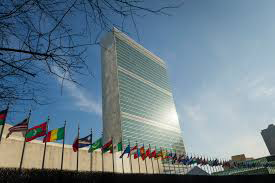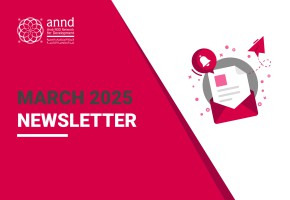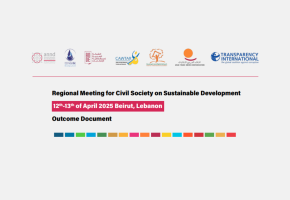
Jun 04, 2018
ANND Participates in the Consultations of the Committee with NGOs in consultative status with ECOSOC
ANND presented a written submission to the consultations organized by the Committee on Non-Governmental Organizations (NGOs). The consultations with organizations in consultative status with ECOSOC aims at discussing questions of interest to the Committee or to the organizations relating to the relationship between the NGOs and the United Nations. More information is available at : https://reg.unog.ch/event/24555/.
-How can NGOs further contribute to the work of ECOSOC and its subsidiary bodies? What are the most efficient modalities for NGOs to contribute to the United Nations policy-making, be recognized and be influential in these processes?
Established as one of the six main organs of the UN System, ECOSOC serves as the central forum for discussing international economic and social issues. Following the adoption of the Agenda 2030, the Council plays a key role towards achieving sustainable development, the High Level Political Forum on Sustainable Development a significant way to ensure monitoring the implementation of the Agenda and the SDGs. NGOs can further contribute to the work of ECOSOC, providing alternatives for achieving sustainable development. Whereas holding side events, directly participating and advocating at international meetings, NGOs can try to make their voices heard, present these alternatives; the Council should also engage in consultation with them on key issues of concern/encourage member states close coordination/collaboration with civil society. Taking a holistic approach to the Agenda 2030, but prioritizing the implementation the SDG16 should be at the center of initiatives developed in this regard to promote an inclusive, participatory approach.
- What in your organization’s view should be done to provide better support to NGOs during the process of obtaining consultative status with ECOSOC?
ECOSOC consultative status, now held by 4,045 NGOs should be considered as a networking and supporting opportunity among the organizations who have the status and the others who are trying to obtain this status. In this regard UN country offices should act as a reference point and ensure those new applicants to meet the organizations holding ECOSOC status. UN country offices can provide a channel for exchange of information/organize capacity building workshops in order to bring these diverse groups together. Whereas technical details of application can be clearly presented by UN, lessons-learnt and shared experiences among the groups can provide additional support.
- How can the participation of NGOs from developing countries and countries with economies in transition in UN’s work be increased?
More and more, UN is promoting ‘partnership’ which is also within the context of the Agenda 2030 and the SDGs. Yet important to ensure is that this partnership does not remain solely with the private sector but is a genuine partnership ensuring different development actors’ engagement. Thus, civil society and NGOs, as independent development partners should be the primary concern for UN and its agencies when promoting partnership, especially in developing countries, in-country work. This can enhance the role NGOs can play but also achieve better outcomes from UN projects/programmes implemented. Designing these projects in open and inclusive consultation with NGOs can contribute to address local needs and as well as sustainable outcomes with direct contribution by these groups in their implementation. Allocation of UN funds, to support these groups work would also allow them to work more effectively and thus engage in further UN work.
- Once the consultative status is granted to organizations, how best can NGOs access the opportunities given to them to take part in UN processes?
ECOSOC status provides credibility to NGOs and opens them channels for participation, holding side events, submitting reports/statements to the UN events. Unfortunately, all these channels would remain limited opportunities for NGOs, once they don’t have an enabling environment to operate freely, independently and efficiently. The restricted civic space limits their activities outcome, even if they hold an ECOSOC status. In this context, all UN agencies should acknowledge the role that civil society play and adopt a coherent approach to consult, cooperate in implementation of diverse UN actions. Provision of financial support, where access to funding is a challenge several organizations face is also key to ensure that they can actually access the opportunities given to them. Particularly for Southern NGOs, once with consultative status, actual presence at UN summits/meetings is vital to ensure that their voices are heard, yet they remain restricted due to limited resources. This in addition to financial support, requires procedural support in obtaining visa.
Recent publications
Apr 24, 2025

ANND Newsletter - March Issue: Financing for Development: Between Transparency and Global Challenges
Apr 21, 2025

